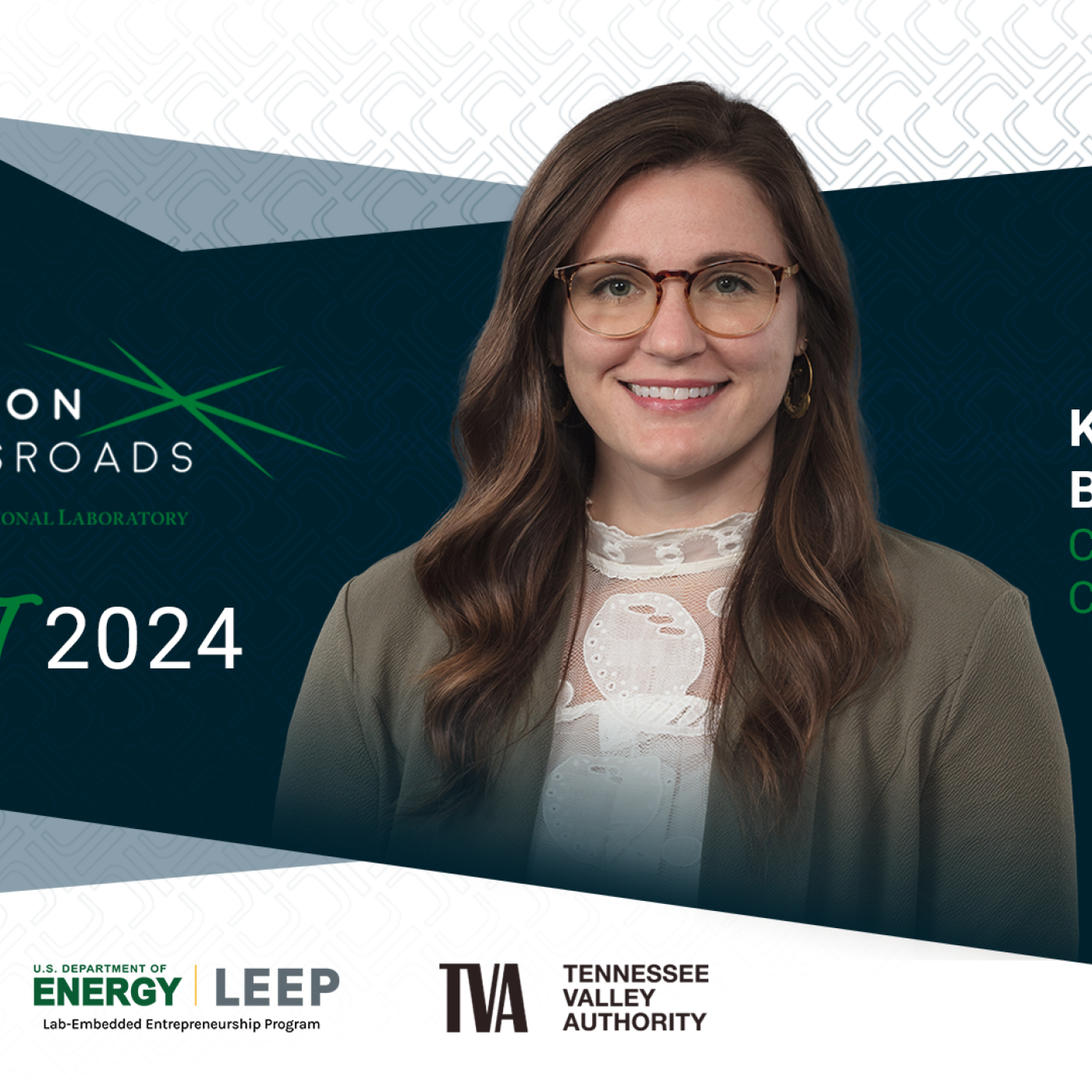
Filter News
Area of Research
- Biology and Environment (15)
- Clean Energy (28)
- Computer Science (1)
- Electricity and Smart Grid (1)
- Functional Materials for Energy (2)
- Fusion and Fission (6)
- Isotopes (12)
- Materials (33)
- Materials for Computing (3)
- National Security (2)
- Neutron Science (3)
- Nuclear Science and Technology (3)
- Supercomputing (9)
News Type
News Topics
- (-) Advanced Reactors (7)
- (-) Big Data (12)
- (-) Energy Storage (31)
- (-) Isotopes (22)
- (-) Microscopy (18)
- (-) Physics (22)
- (-) Polymers (10)
- (-) Simulation (9)
- (-) Space Exploration (1)
- 3-D Printing/Advanced Manufacturing (32)
- Artificial Intelligence (15)
- Bioenergy (23)
- Biology (29)
- Biomedical (15)
- Biotechnology (4)
- Buildings (19)
- Chemical Sciences (23)
- Clean Water (7)
- Climate Change (23)
- Composites (7)
- Computer Science (30)
- Coronavirus (10)
- Critical Materials (3)
- Cybersecurity (12)
- Decarbonization (20)
- Environment (52)
- Exascale Computing (6)
- Frontier (6)
- Fusion (16)
- Grid (11)
- High-Performance Computing (21)
- Hydropower (2)
- Irradiation (1)
- ITER (2)
- Machine Learning (8)
- Materials (40)
- Materials Science (32)
- Mathematics (4)
- Mercury (4)
- Molten Salt (1)
- Nanotechnology (18)
- National Security (25)
- Net Zero (3)
- Neutron Science (23)
- Nuclear Energy (32)
- Partnerships (8)
- Quantum Computing (3)
- Quantum Science (6)
- Security (9)
- Software (1)
- Summit (4)
- Sustainable Energy (25)
- Transformational Challenge Reactor (1)
- Transportation (25)
Media Contacts

Anne Campbell, a researcher at ORNL, recently won the Young Leaders Professional Development Award from the Minerals, Metals & Materials Society, or TMS, and has been chosen as the first recipient of the Young Leaders International Scholar Program award from TMS and the Korean Institute of Metals and Materials, or KIM.
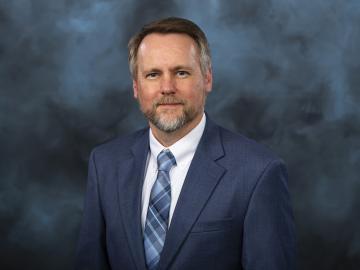
Michael McGuire’s recognition as the Oak Ridge National Laboratory's top scientist headlined the annual awards. ORNL Director Stephen Streiffer also presented Director’s Awards to two teams, for operational performance and continuous improvement, and to the night’s science communicator awardee

Hilda Klasky, an R&D staff member in the Scalable Biomedical Modeling group at ORNL, has been selected as a senior member of the Association of Computing Machinery, or ACM.
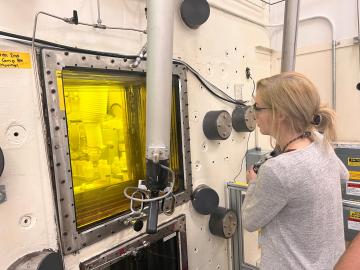
Raina Setzer knows the work she does matters. That’s because she’s already seen it from the other side. Setzer, a radiochemical processing technician in Oak Ridge National Laboratory’s Isotope Processing and Manufacturing Division, joined the lab in June 2023.
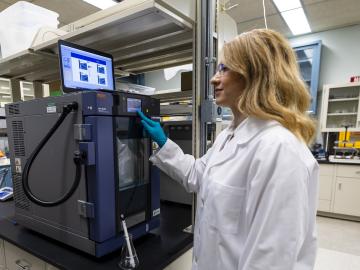
The common sounds in the background of daily life – like a refrigerator’s hum, an air conditioner’s whoosh and a heat pump’s buzz – often go unnoticed. These noises, however, are the heartbeat of a healthy building and integral for comfort and convenience.
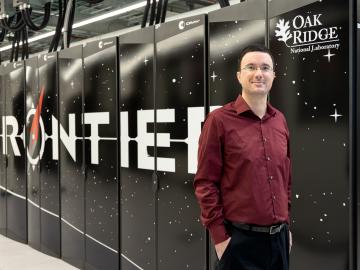
The Exascale Small Modular Reactor effort, or ExaSMR, is a software stack developed over seven years under the Department of Energy’s Exascale Computing Project to produce the highest-resolution simulations of nuclear reactor systems to date. Now, ExaSMR has been nominated for a 2023 Gordon Bell Prize by the Association for Computing Machinery and is one of six finalists for the annual award, which honors outstanding achievements in high-performance computing from a variety of scientific domains.

Madhavi Martin brings a physicist’s tools and perspective to biological and environmental research at the Department of Energy’s Oak Ridge National Laboratory, supporting advances in bioenergy, soil carbon storage and environmental monitoring, and even helping solve a murder mystery.
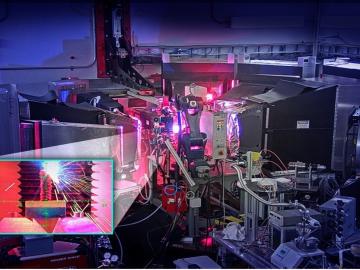
Technologies developed by researchers at ORNL have received six 2023 R&D 100 Awards.
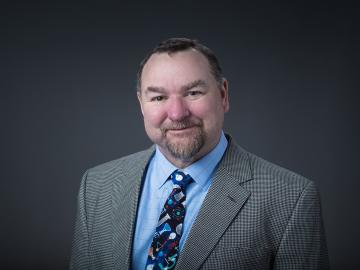
It was reading about current nuclear discoveries in textbooks that first made Ken Engle want to work at a national lab. It was seeing the real-world impact of the isotopes produced at ORNL
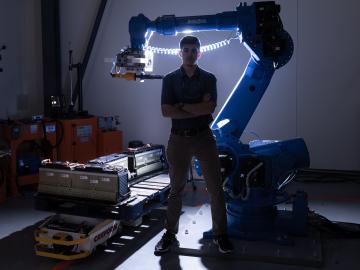
After being stabilized in an ambulance as he struggled to breathe, Jonathan Harter hit a low point. It was 2020, he was very sick with COVID-19, and his job as a lab technician at ORNL was ending along with his research funding.


